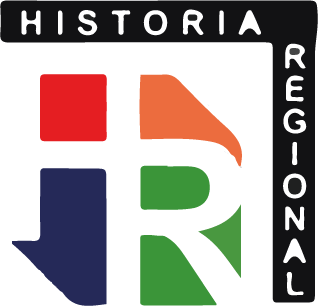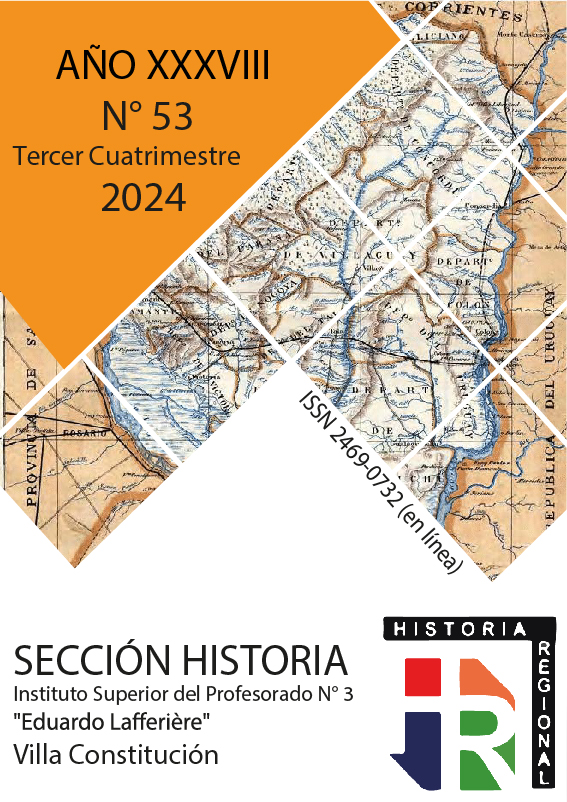Dynamics of development of Kazakhstan historical science during the years of independence (1991-2020): Scientific analysis, historical value and significance
Main Article Content
Abstract
This article discusses the positive changes that have occurred since Kazakhstan's independence to fill in the gaps, such as the protection of fundamental research in Kazakhstan's history to eliminate “gaps” and the results of PhD and doctoral dissertations on important topics, as well as state-funded research projects on important topics. In historical research, an attempt has been made to conduct a comprehensive analysis of certain topics highlighting various stages and directions of the historical path of development of modern Kazakhstan. They became the basis for an in-depth and objective study of historical phenomena, made their own contribution to the development of modern historical science. Integration of Russian historians into the international scientific community is of great importance. They contribute to the development of new conceptual and methodological approaches, expanding access to unique archival sources and obtaining new knowledge on the history of Kazakhstan.
Downloads
Download data is not yet available.
Article Details
How to Cite
Abil, Y. A., Karassayev, G. M., Ualtayeva, A. S., Kaliyeva, M. S., & YensenovK. А. (2024). Dynamics of development of Kazakhstan historical science during the years of independence (1991-2020): Scientific analysis, historical value and significance. Historia Regional, (53), 1-14. Retrieved from https://historiaregional.org/ojs/index.php/historiaregional/article/view/973
Section
Articles

This work is licensed under a Creative Commons Attribution 4.0 International License.
Los autores que publican en esta revista están de acuerdo con los siguientes términos:
- Los autores conservan los derechos de autor y garantizan a la revista el derecho de ser la primera publicación del trabajo al igual que licenciado bajo una Creative Commons Attribution License que permite a otros compartir el trabajo con un reconocimiento de la autoría del trabajo y la publicación inicial en esta revista.
- Los autores pueden establecer por separado acuerdos adicionales para la distribución no exclusiva de la versión de la obra publicada en la revista (por ejemplo, situarlo en un repositorio institucional o publicarlo en un libro), con un reconocimiento de su publicación inicial en esta revista.
- Se permite y se anima a los autores a difundir sus trabajos electrónicamente (por ejemplo, en repositorios institucionales o en su propio sitio web) antes y durante el proceso de envío, ya que puede dar lugar a intercambios productivos, así como a una citación más temprana y mayor de los trabajos publicados (Véase The Effect of Open Access) (en inglés).
References
Adelchanov, K., Zharkenova, A., Kolumbaeva, Z., Muratbekkyzy, B., Erdenbekova, Z., & Selkebayeva, A. (2016). Steppes deer stones. Anthropologist, 26(1-2), 1-4. DOI: https://doi.org/10.1080/09720073.2016.11892121
Aguilar Gil, Y. (2020). A tribute to our roots? Cultural misappropriation in Mexico. Catopard.
Alekseyev, V. V., Kradin, N. N., Korotayev, A. V., & Grinin, L. Ye. (2014). Theory and methodology of history. Volgograd: Uchitel.
Arynov, K., Zhaksylykova, L., Chernysh, N., Chekayeva, R., & Khvan, Y. (2022). A Basis for Creating Educational and Production Centers and Folk Applied Craft Centers in the Settlements of Kazakhstan. ISVS e-journal, 9(5), 291-302.
Ayagan, B. G. (2019). Horizons of national history (development of the science of history of Kazakhstan in the era of independence). Astana: LLP Daeme.
Ayagan, B. G., Abzhanov, H. M., & Mahat, D. A. (2010). Textbook of modern history of Kazakhstan. Almaty: Raritet.
Ayagan, B., & Auanasova, A. (2015). Nursultan Nazarbayev: Man in power. Almaty: Litera-M.
Bekmakhanov, E. (2005). The life and work of a scientist and the history of Kazakhstan. Retrieved from: https://ua1lib.org/ireader/3064086
Bibliographic index of doctoral and candidate dissertations in historical sciences. (2003). Almaty: TEI.
Dudar, V. (2023). Ethical guidelines for collaborative research in European ethnography. European Chronicle, 8(4), 15-25. DOI: https://doi.org/10.59430/euch/4.2023.15
Esmagambetov, K. L. (2000). Philosophy of Independence. Women of Kazakhstan, 5, 1-5.
Gonzalez Casanova, P. (1965). Internal Colonialism and National Development. Studies in Comparative International Development, 1(4), 27-37.
Guha, R. 1983. Elementary Aspects of Peasant Insurgency in Colonial India. Delhi: Oxford University Press.
Hasanova, J. V. (2022). EU’s Eastward Enlargement Policy in the 1990s and Turkey. Voprosy Istorii, 2022(1-2), 177-190. DOI: https://doi.org/10.31166/VoprosyIstorii202201Statyi68
Heather, P. (2012). Empires and Barbarians: The Fall of Rome and the Birth of Europe. Oxford: Oxford University Press.
History of Kazakhstan (from ancient times to the present). (2010). Almaty: Atamura.
How has Kazakh patriotism changed over the years of Independence? (2021). Retrieved from: https://strategy2050.kz/ru/news/kak-izmenilsya-kazakhstanskiy-patriotizm-za-gody-nezavisimosti/
Karasaev, G. M., Dyusen, S. Zh., & Kaliev, Zh. N. (2018). Leader of the Nation N. A. Nazarbayev and the foreign policy of independent Kazakhstan. Astana: BIKA.
Kotsur, L. (2023). Formation of national pride is a necessary component of statehood. Society, Document, Communication, 8(1), 182-198. DOI: https://doi.org/10.31470/2518-7600-2023-18-182-198
Kozybayev, M. K. (1998). Intelligence of history (Zaman Pass). Almaty: Science.
Kundakbayeva, Zh. B. (2016). The history of Kazakhstan from the earliest period to the present time. Almaty: Qazaq university.
Kuzembaevich, A. (2014). Theory and methodology of history. Kostanay: Kostanay State Pedagogical Institute.
Lapin N. S. (2017). President of the Republic of Kazakhstan N. A. Nazarbayev and the formation of the historical consciousness of Kazakhstan people. Astana: BiKA.
Molotkina, V., & Khmelnytska, L. (2023). Application of visual sources in history lessons as a means of developing students' critical thinking skills. Society, Document, Communication, 8(1), 227-252. DOI: https://doi.org/10.31470/2518-7600-2023-18-227-252
Nazarbayev, N. A. (2003a). At the turn of the century. Almaty: Atamura.
Nazarbayev, N. A. (2003b). Critical decade. Almaty: Atamura.
Nazarbayev, N. A. (2017). Era of Independence. https://elbasy.kz/sites/default/files/pagefiles/2019-06/423d7253d66cad2c6f68758bcaf33782.pdf
Nimani, A. (2023). European orientation towards the preservation of cultural heritage in the light of historical losses: Institutional and legal issues. European Chronicle, 8(3), 5-15. DOI: https://doi.org/10.59430/euch/3.2023.05
Smolensky, N. I. (2008). Theory and methodology of history. Moscow: Publishing Center “Academy”.
Spivak, G. (1999). A Critique of Post-Colonial Reason: Toward a History of the Vanishing Present. Harvard: Harvard University Press.
State of the Nation Address by President of the Republic of Kazakhstan Kassym-Zhomart Tokayev. (2021). Retrieved from: https://www.akorda.kz/ru/poslanie-glavy-gosudarstva-kasym-zhomarta-tokaeva-narodu-kazahstana-183048
Stavenhagen, R. (1975). Social classes in agrarian societies. Milwaukee: Anchor Press.
Tokayev, K. K. (2008). Belasu. Almaty: Dauir.
Tokayev, K. K. (2021). Independence is the most precious thing. Retrieved from: https://egemen.kz/article/260146-tauelsizdik-barinen-qymbat?fbclid=IwAR1N2pVQ9jftgnYd3x2AH4NS3D_V5PqRPiVrWuoQ6Tae5ta5mtx8lEXYF8
Trushaj, А. (2023). Features of the foreign policy of the Republic of Kazakhstan. Foreign Affairs, 33(5), 45-51. DOI: https://doi.org/10.46493/2663-2675.33(5).2023.45-51
Aguilar Gil, Y. (2020). A tribute to our roots? Cultural misappropriation in Mexico. Catopard.
Alekseyev, V. V., Kradin, N. N., Korotayev, A. V., & Grinin, L. Ye. (2014). Theory and methodology of history. Volgograd: Uchitel.
Arynov, K., Zhaksylykova, L., Chernysh, N., Chekayeva, R., & Khvan, Y. (2022). A Basis for Creating Educational and Production Centers and Folk Applied Craft Centers in the Settlements of Kazakhstan. ISVS e-journal, 9(5), 291-302.
Ayagan, B. G. (2019). Horizons of national history (development of the science of history of Kazakhstan in the era of independence). Astana: LLP Daeme.
Ayagan, B. G., Abzhanov, H. M., & Mahat, D. A. (2010). Textbook of modern history of Kazakhstan. Almaty: Raritet.
Ayagan, B., & Auanasova, A. (2015). Nursultan Nazarbayev: Man in power. Almaty: Litera-M.
Bekmakhanov, E. (2005). The life and work of a scientist and the history of Kazakhstan. Retrieved from: https://ua1lib.org/ireader/3064086
Bibliographic index of doctoral and candidate dissertations in historical sciences. (2003). Almaty: TEI.
Dudar, V. (2023). Ethical guidelines for collaborative research in European ethnography. European Chronicle, 8(4), 15-25. DOI: https://doi.org/10.59430/euch/4.2023.15
Esmagambetov, K. L. (2000). Philosophy of Independence. Women of Kazakhstan, 5, 1-5.
Gonzalez Casanova, P. (1965). Internal Colonialism and National Development. Studies in Comparative International Development, 1(4), 27-37.
Guha, R. 1983. Elementary Aspects of Peasant Insurgency in Colonial India. Delhi: Oxford University Press.
Hasanova, J. V. (2022). EU’s Eastward Enlargement Policy in the 1990s and Turkey. Voprosy Istorii, 2022(1-2), 177-190. DOI: https://doi.org/10.31166/VoprosyIstorii202201Statyi68
Heather, P. (2012). Empires and Barbarians: The Fall of Rome and the Birth of Europe. Oxford: Oxford University Press.
History of Kazakhstan (from ancient times to the present). (2010). Almaty: Atamura.
How has Kazakh patriotism changed over the years of Independence? (2021). Retrieved from: https://strategy2050.kz/ru/news/kak-izmenilsya-kazakhstanskiy-patriotizm-za-gody-nezavisimosti/
Karasaev, G. M., Dyusen, S. Zh., & Kaliev, Zh. N. (2018). Leader of the Nation N. A. Nazarbayev and the foreign policy of independent Kazakhstan. Astana: BIKA.
Kotsur, L. (2023). Formation of national pride is a necessary component of statehood. Society, Document, Communication, 8(1), 182-198. DOI: https://doi.org/10.31470/2518-7600-2023-18-182-198
Kozybayev, M. K. (1998). Intelligence of history (Zaman Pass). Almaty: Science.
Kundakbayeva, Zh. B. (2016). The history of Kazakhstan from the earliest period to the present time. Almaty: Qazaq university.
Kuzembaevich, A. (2014). Theory and methodology of history. Kostanay: Kostanay State Pedagogical Institute.
Lapin N. S. (2017). President of the Republic of Kazakhstan N. A. Nazarbayev and the formation of the historical consciousness of Kazakhstan people. Astana: BiKA.
Molotkina, V., & Khmelnytska, L. (2023). Application of visual sources in history lessons as a means of developing students' critical thinking skills. Society, Document, Communication, 8(1), 227-252. DOI: https://doi.org/10.31470/2518-7600-2023-18-227-252
Nazarbayev, N. A. (2003a). At the turn of the century. Almaty: Atamura.
Nazarbayev, N. A. (2003b). Critical decade. Almaty: Atamura.
Nazarbayev, N. A. (2017). Era of Independence. https://elbasy.kz/sites/default/files/pagefiles/2019-06/423d7253d66cad2c6f68758bcaf33782.pdf
Nimani, A. (2023). European orientation towards the preservation of cultural heritage in the light of historical losses: Institutional and legal issues. European Chronicle, 8(3), 5-15. DOI: https://doi.org/10.59430/euch/3.2023.05
Smolensky, N. I. (2008). Theory and methodology of history. Moscow: Publishing Center “Academy”.
Spivak, G. (1999). A Critique of Post-Colonial Reason: Toward a History of the Vanishing Present. Harvard: Harvard University Press.
State of the Nation Address by President of the Republic of Kazakhstan Kassym-Zhomart Tokayev. (2021). Retrieved from: https://www.akorda.kz/ru/poslanie-glavy-gosudarstva-kasym-zhomarta-tokaeva-narodu-kazahstana-183048
Stavenhagen, R. (1975). Social classes in agrarian societies. Milwaukee: Anchor Press.
Tokayev, K. K. (2008). Belasu. Almaty: Dauir.
Tokayev, K. K. (2021). Independence is the most precious thing. Retrieved from: https://egemen.kz/article/260146-tauelsizdik-barinen-qymbat?fbclid=IwAR1N2pVQ9jftgnYd3x2AH4NS3D_V5PqRPiVrWuoQ6Tae5ta5mtx8lEXYF8
Trushaj, А. (2023). Features of the foreign policy of the Republic of Kazakhstan. Foreign Affairs, 33(5), 45-51. DOI: https://doi.org/10.46493/2663-2675.33(5).2023.45-51

